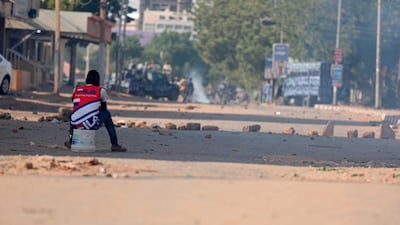Except for a brief reprieve in the 2000s, the sight of car lines snaking around petrol stations has for decades been a fixture in the Sudanese capital, Khartoum.
A sprawling metropolis with unreliable public transport and dusty streets filled with cars, trucks, buses and tuk-tuks, the city has an insatiable demand for fuel.
But government subsidises, setting fuel at an incredibly low price, have led to soaring demand, far beyond the country’s capacity to refine new fuel.
For motorists, this means misery when it comes to refilling the tank and hour long waits.
In a move that could significantly impact the streets across the vast Afro-Arab nation and save the cash-strapped treasury about $1 billion annually, the government has decided to partially lift fuel subsidies, a politically bold and risky move that none of its predecessors going back a half century had the resolve to do.
State subsidies on bread and electricity, however, will continue but they are destined to eventually go as Sudan, experiencing its worst economic crisis in living memory, desperately seeks funds to redirect towards services.
State subsidies have consistently been more than just a government policy to cushion the Sudanese populace from the fluctuations of world prices.
Instead they have been politically loaded, and attempts to remove or even reduce them over the years have sparked street protests.
In some cases, those protests brought down authoritarian rulers, like Omar Al Bashir, removed by his generals in April 2019 after months of protests triggered by his decision to lift subsidies on bread.
The risk of street protests over the October 27 reduction of fuel subsidies remains high and could well prove a step too far for a transitional government already living precariously, following a series of seismic policy shifts.
These include normalising relations with one-time archenemy Israel and declaring the separation of state and religion in a conservative and mostly Muslim country that has been plagued by civil wars with strong ethnic and religious undercurrents.
But the much-heralded decision has created a cumbersome, two-tier pricing system.
Designated petrol stations now sell fuel at partially subsidised prices, with a litre of petrol sold at 56 pounds, around one US dollar, while diesel sells at 46 pounds, more than double the old prices of 28 and 18 pounds a litre respectively.
“The government has selected the easy solution to the economic crisis,” said economist Ahmed Khalil about the reduction of fuel subsidies.
“It reduced subsidies but did not put in place mechanisms to ensure subsidies reach those who need them.”
Another set of stations sell fuel at prices that reflect world market levels, with a litre of petrol going for 120 pounds and diesel at 106 pounds.
The fuel sold at these stations is imported by the private sector. A joint committee bringing together government representatives and importers was created to review the prices on weekly basis to ensure they reflect world market fluctuations.
“It is probably a step taken at a time when people are going through a tough phase, but what will come afterwards will be for the benefit of the country and its people,” Energy Minister Adel Ibrahim told a news conference on the day he announced the new prices.
The new system has meant that long lines for petrol endure at filling stations selling the subsidised fuel. Meanwhile, those who can afford the free market prices can drive into a station and refill their vehicle in a matter of minutes.
“I am a clerk at a private sector company,” said Khartoum resident Amen Hassan. “I cannot afford to buy petrol at the free market stations, so I have to wait two to three hours in line before I can fill my tank.”
The new system has another serious drawback; it has given a new lease to life to black market trading in fuel, an illicit career option many of the country’s unemployed take up to make ends meet.
Taking advantage of the two-tier system, racketeers now fill up at the stations offering lower prices and sell the fuel at a much higher price, that’s still lower than what’s offered at the free market stations.
While there were no violent protests over the decision to partially lift fuel subsidies, there has been an uproar on social media. In protest, dozens of motorists blocked Khartoum’s Nile bridges, snarling traffic across much of the city.
Curiously, Sudan’s energy woes have always been interwoven with its complex politics.
An Afro-Arab nation, its territory was significantly reduced when the country’s mainly animist and Christian south seceded in 2011 under a 2005 peace deal with Khartoum, ending more than 20 years of civil war.
With the south gone, most of Sudan’s oilfields were gone too, leaving the northern part of the country and its 40-plus million people a meagre 60,000 barrels per day, down from 500,000 that the entire nation had prior to the secession. That oil boom earned Sudan a reprieve from its chronic economic difficulties and bankrolled a construction boom that altered Khartoum’s landscape with streel-and-glass office towers and luxury hotels.
This came crashing down after 2011, a key factor in the end of Mr Al Bashir’s presidency. But things might change, albeit slowly, now that Washington has decided to remove Sudan’s name from the list of state sponsors of terrorism, following the Abraham Accords.
This will unlock hundreds of millions of dollars in foreign aid and restore Sudan’s links to international money markets.


